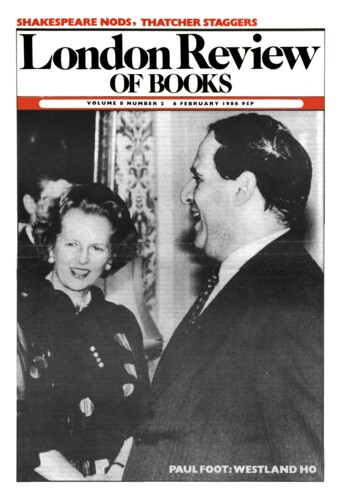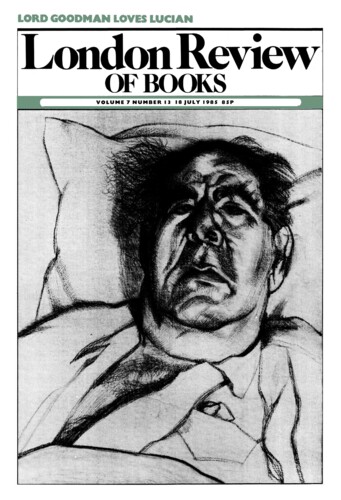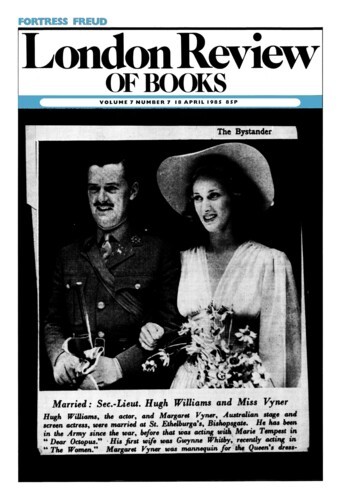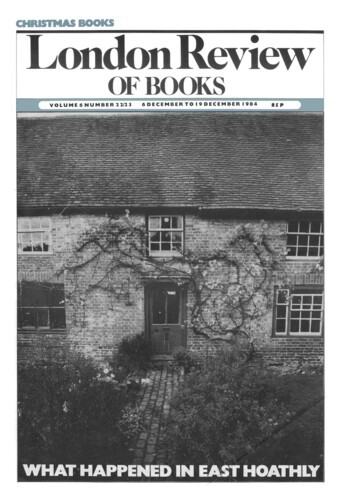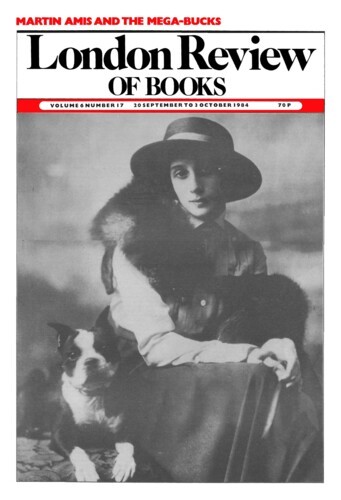Worthies
C.H. Sisson, 6 February 1986
Whether one regards the honours system as a comedy, or a scandal, or merely as a perfectly ordinary bit of government machinery – like other bits not always as sensibly managed as it might be – is a question about which it hardly seems necessary to get excited. The system can hardly avoid being all these things, and anyone who has watched its operations, even intermittently, over a number of years is likely to accept it more or less as he accepts the rest of our constitutional arrangements. Of course there are people – like Willie Hamilton – to whom the constitution itself is a scandal. Their disapproval of the honours system must be taken for granted. John Walker is presumably more open-minded, and willing to speak as he finds, though what exactly an enquirer finds must depend on his general perspectives. ‘This book started,’ we are told, ‘as an article for Labour Research.’ Walker spent five years in the Labour Research Department, which he has now left for work in local government, where, his publisher tells us, he is ‘25 years away from an MBE’. We wish him luck.’
